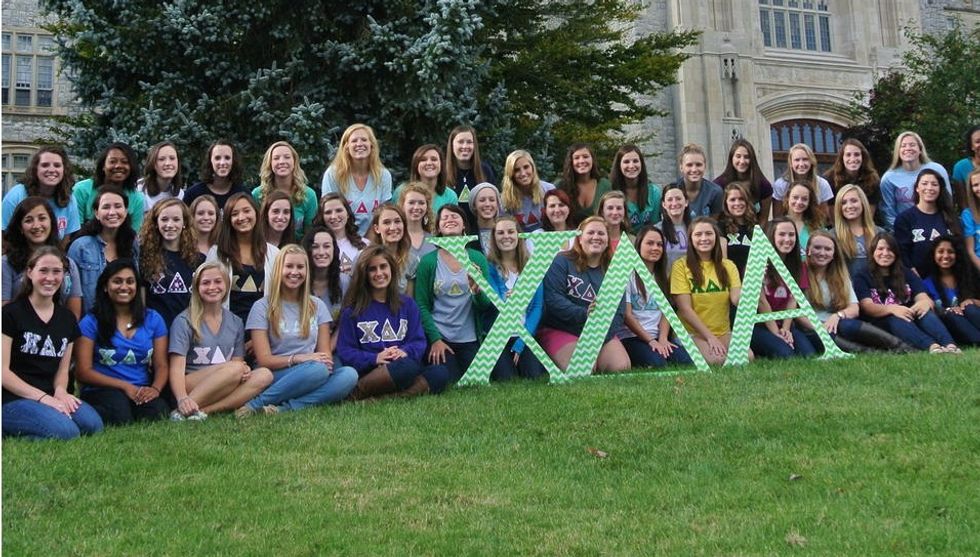Let me be the first to introduce you to Chi Delta Alpha, a small, community service sorority at Virginia Tech.
Also referred to as XDA, the sorority was established in February of 1967, with the objective of creating a sisterhood bound by serving the community through unselfish service.
As a non-Greek sorority, we do not fall under the umbrella of the panhellenic council at Virginia Tech, which also means we don’t have a house in Oak Lane. Similarly, XDA differs from most sororities on campus because it is exclusive to Virginia Tech and therefore doesn’t have other chapters all across the country.
Currently, XDA is larger than ever before, with 74 sisters. We do not, however, allow new membership if the number of sisters exceeds 60 women, minus the number of graduating seniors, in an effort to ensure our organization stays small.
We don’t have a deep history that extends back a hundred years and because of how small our organization has been historically, XDA doesn’t have a strong alumni base compared to a larger, Greek sorority, which means we may have less networking opportunities.
Also, on a campus of over 30,000 students, being small makes it difficult to have an overwhelming presence and compete with larger sororities in philanthropic events/ with homecoming campaigns, for example.
However, at the risk of exposing my inner “English-major nerd” and in the words of William Shakespeare, “though she be but little, she is fierce.”
Being in the 'alpha-and-only' chapter of a small sorority is unique. Over the recent years, XDA has really begun to make a name for itself among larger organizations. For example, in the fall of 2013, XDA placed first in Alpha Chi Omega’s ‘Mock Rock,’ which supports victims of domestic violence, coming in over 3,000 points ahead of the second place winner.
While I would love to be able to purchase pre-made XDA apparel in stores and have a custom, Lilly Pulitzer print, there are many advantages to being in the 'alpha-and-only' chapter of a small sorority.
For example, by not having a house to support or any kinds of membership fees to pay to a national organization, our dues are remarkably cheaper than most Greek sororities, usually falling below $80 per semester.
Having a smaller sisterhood is also unique because before pledges can even be initiated, they must meet with every sister in the sorority for a half-hour interview, along with each of their fellow pledges in small groups for at least an hour at a time. These interviews with sisters and pledge groups help each girl find who their close friends will become on a deeper level early on. It also means that by the time you become a sister, there are no strangers in the organization and going to your first meeting is a lot less intimidating because every face is familiar.
In addition, being small helps foster an environment of meaningful discussion during meetings. Each girl has a chance to have her voice heard, and when we make a decision to stand behind a cause or work towards something, it is easy to become a cohesive unit that goes all-in to get the job done.
XDA’s size also opens lots of opportunities for leadership. The leadership board and executive committee maintains extreme levels of transparency because those sisters, by nature of our size, are much closer to the general sisterhood. My feelings have always been that there isn’t a large gap between the leaders of sorority and the sisters they are serving, so it's easy to know what the majority of the sisterhood wants and make that happen.
While our size may inhibit networking among sisters after graduation, the emphasis XDA places on service and our involvement in the community helps sisters network with members of the community who work in fields they may be interested in pursuing later on, while gaining valuable experience and compiling a list of references. These field range from working in schools, with individuals with intellectual disabilities at Special Olympics and even by getting a little dirty working in community gardens.
So while there are significant differences between our little service sorority and a large, national sorority, fundamentally, we’re pretty similar in how we value service, or philanthropies, and sisterhood.



 Photo by
Photo by  Photo by
Photo by  Photo by
Photo by 



















